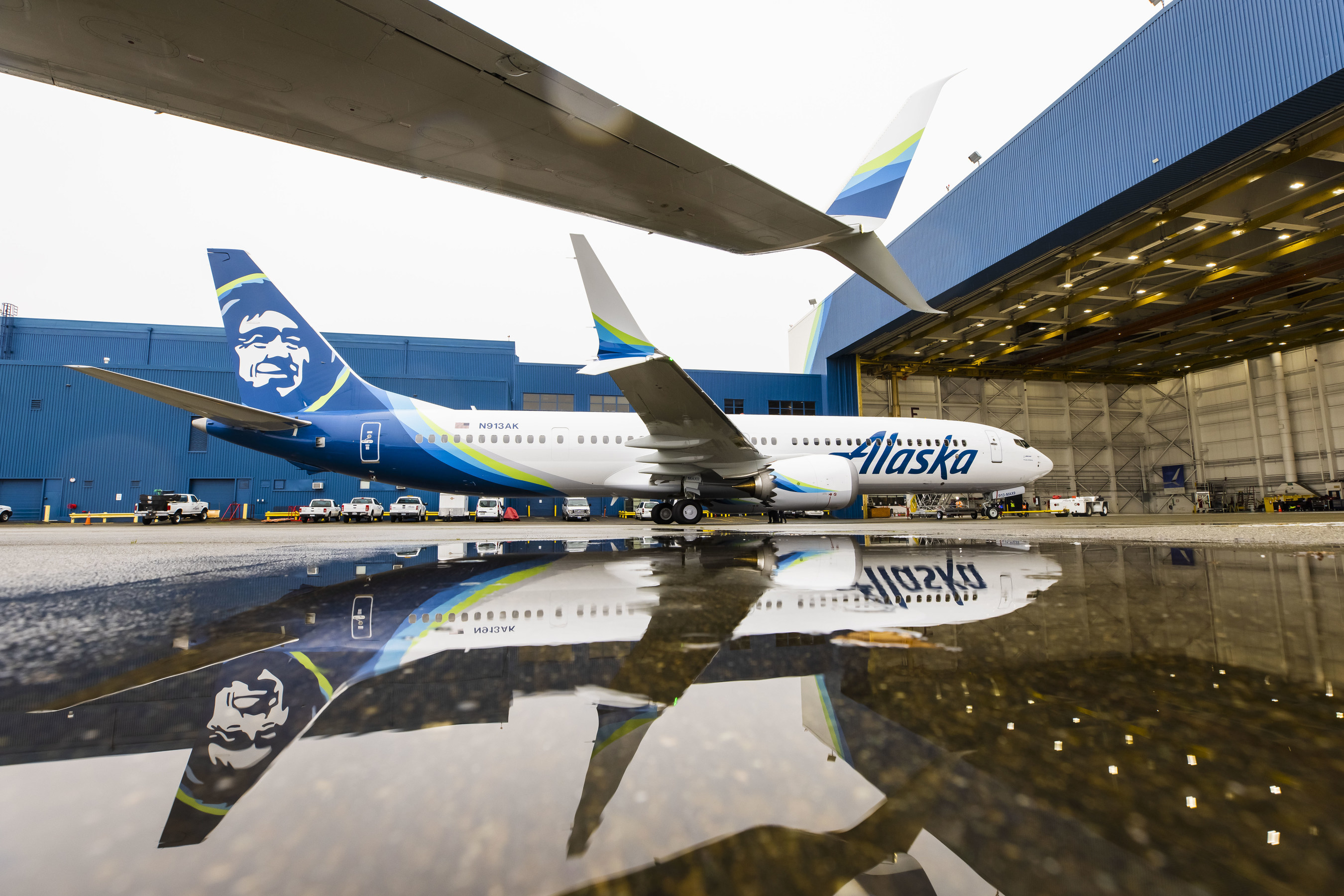The recent mid-air blowout has thrust jet maker Boeing back into the regulatory spotlight at a critical juncture, just as it was on the verge of obtaining approval for new models of its best-selling MAX jet.
Reuters reported that investigators are still in the early stages of determining what caused a so-called door plug to detach from the side of an aircraft operated by Alaska Airlines on Friday with 171 passengers onboard.
According to CNN, the Federal Aviation Administration (FAA) has announced that all 171 Boeing MAX 9 airplanes will remain grounded until the agency is confident in their safe operation.
Mishap Compounds Existing Production Setbacks
This mishap further compounds the existing production setbacks that Boeing and supplier Spirit AeroSystems have been grappling with. These setbacks have hindered Boeing's recovery from a previous lengthy safety grounding of the 737 MAX and have been exacerbated by the wider disruption caused by the ongoing pandemic.
Meanwhile, Boeing's rival Airbus has experienced gains in market share since the two MAX crashes in 2018 and 2019, which resulted in nearly 350 fatalities and the grounding of the MAX worldwide for 20 months. The troubled history of the MAX has prompted significant reforms in U.S. airplane regulation throughout 2020.
Airlines increasingly seek to maximize passenger capacity in single-aisle aircraft, leveraging their improved performance, range, and cost-effectiveness. Having faced disappointing sales of its largest narrowbody, the MAX 9, Boeing was banking on its latest offering, the larger-capacity MAX 10, to compete with Airbus's dominating A321neo in the bustling market segment.
Boeing's Reluctance to Invest in New Plane
Brought by a debt of $39 billion, Boeing has been hesitant to invest in an all-new aircraft until engine technology matures in the next decade. However, delays in the certification process of the MAX 10, in particular, could place significant pressure on Boeing's strategy to bridge the gap throughout the 2020s, as analysts note.
Boeing's struggles have caught the attention of the Chinese market. Due to MAX safety concerns and trade tensions, this significant territory has been primarily closed to the jet maker in recent years. Chinese officials are closely monitoring the Alaska incident and seeking updates, illustrating the importance of the Chinese market to Boeing.
Due to these challenges, Boeing's shares have witnessed a decline of more than 40%, in stark contrast to Airbus's shares, which have risen by 25%.
FAA Considers Certification Exemption
The FAA is evaluating whether to grant an exemption allowing the MAX 7 to attain certification before Boeing completes the required design changes. However, industry experts suggest that the recent MAX 9 accident may tilt the scales toward rejecting the exemption.
Photo: Alaska Airlines Newsroom



 Trump Backs Nexstar–Tegna Merger Amid Shifting U.S. Media Landscape
Trump Backs Nexstar–Tegna Merger Amid Shifting U.S. Media Landscape  Prudential Financial Reports Higher Q4 Profit on Strong Underwriting and Investment Gains
Prudential Financial Reports Higher Q4 Profit on Strong Underwriting and Investment Gains  SpaceX Pushes for Early Stock Index Inclusion Ahead of Potential Record-Breaking IPO
SpaceX Pushes for Early Stock Index Inclusion Ahead of Potential Record-Breaking IPO  Nvidia, ByteDance, and the U.S.-China AI Chip Standoff Over H200 Exports
Nvidia, ByteDance, and the U.S.-China AI Chip Standoff Over H200 Exports  Nasdaq Proposes Fast-Track Rule to Accelerate Index Inclusion for Major New Listings
Nasdaq Proposes Fast-Track Rule to Accelerate Index Inclusion for Major New Listings  Tencent Shares Slide After WeChat Restricts YuanBao AI Promotional Links
Tencent Shares Slide After WeChat Restricts YuanBao AI Promotional Links  American Airlines CEO to Meet Pilots Union Amid Storm Response and Financial Concerns
American Airlines CEO to Meet Pilots Union Amid Storm Response and Financial Concerns  Once Upon a Farm Raises Nearly $198 Million in IPO, Valued at Over $724 Million
Once Upon a Farm Raises Nearly $198 Million in IPO, Valued at Over $724 Million  Uber Ordered to Pay $8.5 Million in Bellwether Sexual Assault Lawsuit
Uber Ordered to Pay $8.5 Million in Bellwether Sexual Assault Lawsuit  SoftBank Shares Slide After Arm Earnings Miss Fuels Tech Stock Sell-Off
SoftBank Shares Slide After Arm Earnings Miss Fuels Tech Stock Sell-Off  Weight-Loss Drug Ads Take Over the Super Bowl as Pharma Embraces Direct-to-Consumer Marketing
Weight-Loss Drug Ads Take Over the Super Bowl as Pharma Embraces Direct-to-Consumer Marketing  Missouri Judge Dismisses Lawsuit Challenging Starbucks’ Diversity and Inclusion Policies
Missouri Judge Dismisses Lawsuit Challenging Starbucks’ Diversity and Inclusion Policies  Toyota’s Surprise CEO Change Signals Strategic Shift Amid Global Auto Turmoil
Toyota’s Surprise CEO Change Signals Strategic Shift Amid Global Auto Turmoil  TSMC Eyes 3nm Chip Production in Japan with $17 Billion Kumamoto Investment
TSMC Eyes 3nm Chip Production in Japan with $17 Billion Kumamoto Investment  Alphabet’s Massive AI Spending Surge Signals Confidence in Google’s Growth Engine
Alphabet’s Massive AI Spending Surge Signals Confidence in Google’s Growth Engine  Rio Tinto Shares Hit Record High After Ending Glencore Merger Talks
Rio Tinto Shares Hit Record High After Ending Glencore Merger Talks  Baidu Approves $5 Billion Share Buyback and Plans First-Ever Dividend in 2026
Baidu Approves $5 Billion Share Buyback and Plans First-Ever Dividend in 2026 































